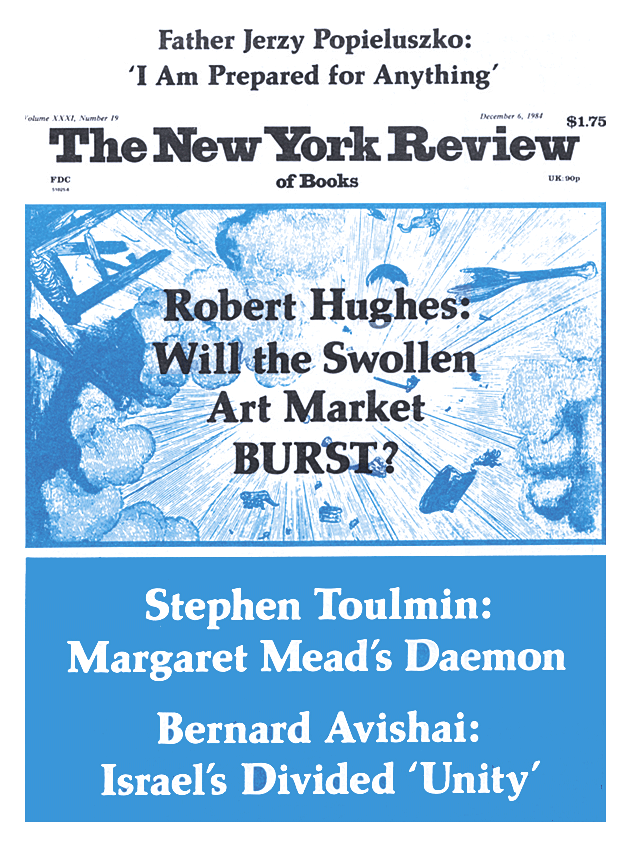To the Editors:
Ariel Hidalgo, a Cuban revolutionary writer, has been in a prison near Havana since 1981. His sister Giselda, a flight attendant and union activist who lives in New York, describes Ariel as “a militant Marxist admirer of Ché Guevara, an idealist, a man who always spoke his mind against injustice regardless of its source.” According to his sister, Hidalgo was first arrested in 1980 when he faced down a rock-throwing group and loudly protested their attack on a student who was seeking permission to leave the country during the exodus of Cubans from the port of Mariel. That this student sought Ariel Hidalgo’s protection was not surprising. Hidalgo was a popular and dedicated teacher of adult workers at the high school near Havana which I attended thirty years ago. The school is named after Manolito Aguiar, a friend of mine and a fellow high school political activist, who was murdered by the Batista police.
Students had for a long time been gathering at Ariel’s house to discuss Marxism and politics. In the 1970s, when he was still in his early thirties, official Cuban journals and publishing houses had printed a number of his political and historical articles on José Martí’s conception of imperialist neocolonialism, and on the Panama Canal (for which he received Cuban and Panamanian prizes), as well as a book, Origins of the Workers’ Movement and of Socialist Thought in Cuba. While these works were written within the boundaries of the prevailing orthodoxy, Hidalgo often ran into problems at work and elsewhere. He always spoke his mind against bureaucratic arrogance, abuses, and privileges. He finally concluded that what existed in Cuba was a far cry from what Marx and Engels had in mind.
After his first arrest in 1980, Hidalgo was freed, but he was arrested again in 1981. He was taken to a psychiatric hospital, then to the state security headquarters and eventually brought to trial. He was accused, convicted, and sentenced to eight years under Section 5 (titled “Enemy Propaganda”) of Article 108-1 of the Cuban penal code, which punishes any person “who incites against the social order, international solidarity or the socialist State by means of oral or written propaganda, or any other form.”
At this political trial, which was ignored, as is usual, by the Cuban press, Hidalgo was only allowed to say few words at the conclusion of the proceedings. Predictably, the “evidence” presented at his very brief trial, which lasted only one session, consisted of members of the local neighborhood defense committee who testified about Hidalgo’s “talking too much.” The prosecution chose not to mention that, while searching his house before the trial, police found and took away his unpublished manuscript entitled “Cuba, The Marxist State and the ‘New Class’: A Dialectical Materialist Study.” In this essay Hidalgo attempts to demonstrate that a new ruling class has taken over in Cuba as well as in the other “socialist” countries. He argues that just as in the capitalist countries, the only course for the working class is to rise up, take over the new state, and establish its own rule.
Hidalgo spent the first fourteen months in jail in deplorable conditions—solitary confinement in a dark, tiny, and filthy cell in the Combinado del Este prison near Havana. Conditions then became less extreme. He was moved to a regular cell, and his wife, although not his daughter, could visit him once a month for two hours. She was allowed to bring him some types of food (e.g., sweets, powdered milk, bread), but no writing or reading materials. Since August 1984, however, even these monthly visits have been prohibited. Hidalgo has rejected the “rehabilitation” that might further improve prison conditions for him or even permit his release. He still stands by his convictions, in particular that in Cuba, the rest of Latin America, and elsewhere in the world, the socialist revolution he believes is necessary cannot survive without socialist democracy. Unfortunately, he was not among those released when Jesse Jackson recently visited Cuba. Like so many others in Cuba, Chile, South Africa, and indeed throughout the world, he remains imprisoned for his political principles.
Samuel Farber
New York City
This Issue
December 6, 1984


